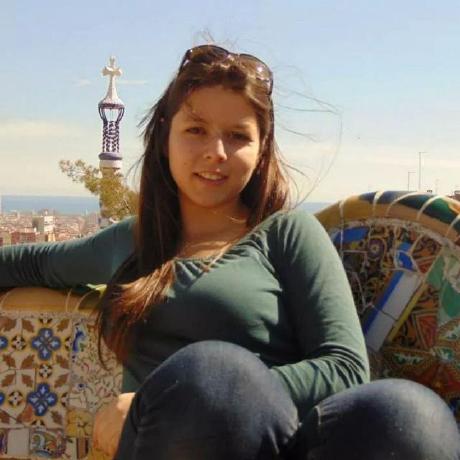Important: The relayer needs funds on both L1s to deliver messages.
In this section, you’ll learn how to configure a relayer to support two-way messaging between multiple Layer 1 blockchains (L1s). By extending your existing configuration, you can enable the relayer to handle communication in both directions, eliminating the need to run multiple relayers.
The relayer configuration is supplied as a JSON file. To open the configuration file automatically created by the Avalanche-CLI, run the following command:
code ~/.avalanche-cli/runs/network_xxxx_xxxx/awm-relayer-config.json Replace xxxx_xxxx with the name automatically assigned to your local deployment.
Alternatively, navigate to the directory ~/.avalanche-cli/runs/ and locate the relayer configuration file for your network.
Assuming you have a configuration as described in the Relayer Configuration section , your current configuration should look similar to the following:
{ " p-chain-api " : { " base-url " : "http://127.0.0.1:9650" , " query-parameters " : {}, " http-headers " : null }, " info-api " : { " base-url " : "http://127.0.0.1:9650" , " query-parameters " : {}, " http-headers " : null }, " source-blockchains " : [ { " subnet-id " : "11111111111111111111111111111111LpoYY" , " blockchain-id " : "epm5fG6Pn1Y5rBHdTe36aZYeLqpXugreyHLZB5dV81rVTs7Ku" , " vm " : "evm" , " rpc-endpoint " : { " base-url " : "http://127.0.0.1:9650/ext/bc/<blockchain-id>/rpc" , " query-parameters " : null , " http-headers " : null }, " ws-endpoint " : { " base-url " : "ws://127.0.0.1:9650/ext/bc/<blockchain-id>/ws" , " query-parameters " : null , " http-headers " : null }, " message-contracts " : { " 0x0000000000000000000000000000000000000000 " : { " message-format " : "off-chain-registry" , " settings " : { " teleporter-registry-address " : "0x<registry-address>" } }, " 0x<contract-address> " : { " message-format " : "teleporter" , " settings " : { " reward-address " : "0x<reward-address>" } } } } ], " destination-blockchains " : [ { " subnet-id " : "11111111111111111111111111111111LpoYY" , " blockchain-id " : "epm5fG6Pn1Y5rBHdTe36aZYeLqpXugreyHLZB5dV81rVTs7Ku" , " vm " : "evm" , " rpc-endpoint " : { " base-url " : "http://127.0.0.1:9650/ext/bc/<blockchain-id>/rpc" , " query-parameters " : null , " http-headers " : null }, " kms-key-id " : "" , " kms-aws-region " : "" , " account-private-key " : "<your-private-key>" } ] } To enable two-way communication between L1s, you need to extend the configuration to include both blockchains in the source-blockchains and destination-blockchains arrays.
Updated Configuration:
{ " p-chain-api " : { " base-url " : "http://127.0.0.1:9650" , " query-parameters " : {}, " http-headers " : null }, " info-api " : { " base-url " : "http://127.0.0.1:9650" , " query-parameters " : {}, " http-headers " : null }, " source-blockchains " : [ { " subnet-id " : "<blockchain-id-A>" , " blockchain-id " : "<blockchain-id-A>" , " vm " : "evm" , " rpc-endpoint " : { " base-url " : "http://127.0.0.1:9650/ext/bc/<blockchain-id-A>/rpc" , " query-parameters " : null , " http-headers " : null }, " ws-endpoint " : { " base-url " : "ws://127.0.0.1:9650/ext/bc/<blockchain-id-A>/ws" , " query-parameters " : null , " http-headers " : null }, " message-contracts " : { " 0x0000000000000000000000000000000000000000 " : { " message-format " : "off-chain-registry" , " settings " : { " teleporter-registry-address " : "0x<registry-address-A>" } }, " 0x<contract-address-A> " : { " message-format " : "teleporter" , " settings " : { " reward-address " : "0x<reward-address-A>" } } } }, { " subnet-id " : "<blockchain-id-B>" , " blockchain-id " : "<blockchain-id-B>" , " vm " : "evm" , " rpc-endpoint " : { " base-url " : "http://127.0.0.1:9650/ext/bc/<blockchain-id-B>/rpc" , " query-parameters " : null , " http-headers " : null }, " ws-endpoint " : { " base-url " : "ws://127.0.0.1:9650/ext/bc/<blockchain-id-B>/ws" , " query-parameters " : null , " http-headers " : null }, " message-contracts " : { " 0x0000000000000000000000000000000000000000 " : { " message-format " : "off-chain-registry" , " settings " : { " teleporter-registry-address " : "0x<registry-address-B>" } }, " 0x<contract-address-B> " : { " message-format " : "teleporter" , " settings " : { " reward-address " : "0x<reward-address-B>" } } } } ], " destination-blockchains " : [ { " subnet-id " : "<blockchain-id-A>" , " blockchain-id " : "<blockchain-id-A>" , " vm " : "evm" , " rpc-endpoint " : { " base-url " : "http://127.0.0.1:9650/ext/bc/<blockchain-id-A>/rpc" , " query-parameters " : null , " http-headers " : null }, " kms-key-id " : "" , " kms-aws-region " : "" , " account-private-key " : "<your-private-key-A>" }, { " subnet-id " : "<blockchain-id-B>" , " blockchain-id " : "<blockchain-id-B>" , " vm " : "evm" , " rpc-endpoint " : { " base-url " : "http://127.0.0.1:9650/ext/bc/<blockchain-id-B>/rpc" , " query-parameters " : null , " http-headers " : null }, " kms-key-id " : "" , " kms-aws-region " : "" , " account-private-key " : "<your-private-key-B>" } ] } By adding both blockchains to the source-blockchains and destination-blockchains arrays, the relayer is configured to:
Listen for messages on both blockchains.
Relay messages to the opposite blockchain.
This setup enables two-way communication between the blockchains using a single relayer instance.
Private Keys : Ensure that the account-private-key field contains the private key for the respective blockchain. This key is used to sign transactions when relaying messages.Funding : The relaxyer account must have sufficient funds on both L1s to cover transaction fees.
After updating the configuration file:
Save the changes.
Restart the relayer to apply the new configuration.
Test the two-way communication by sending messages between the blockchains.


